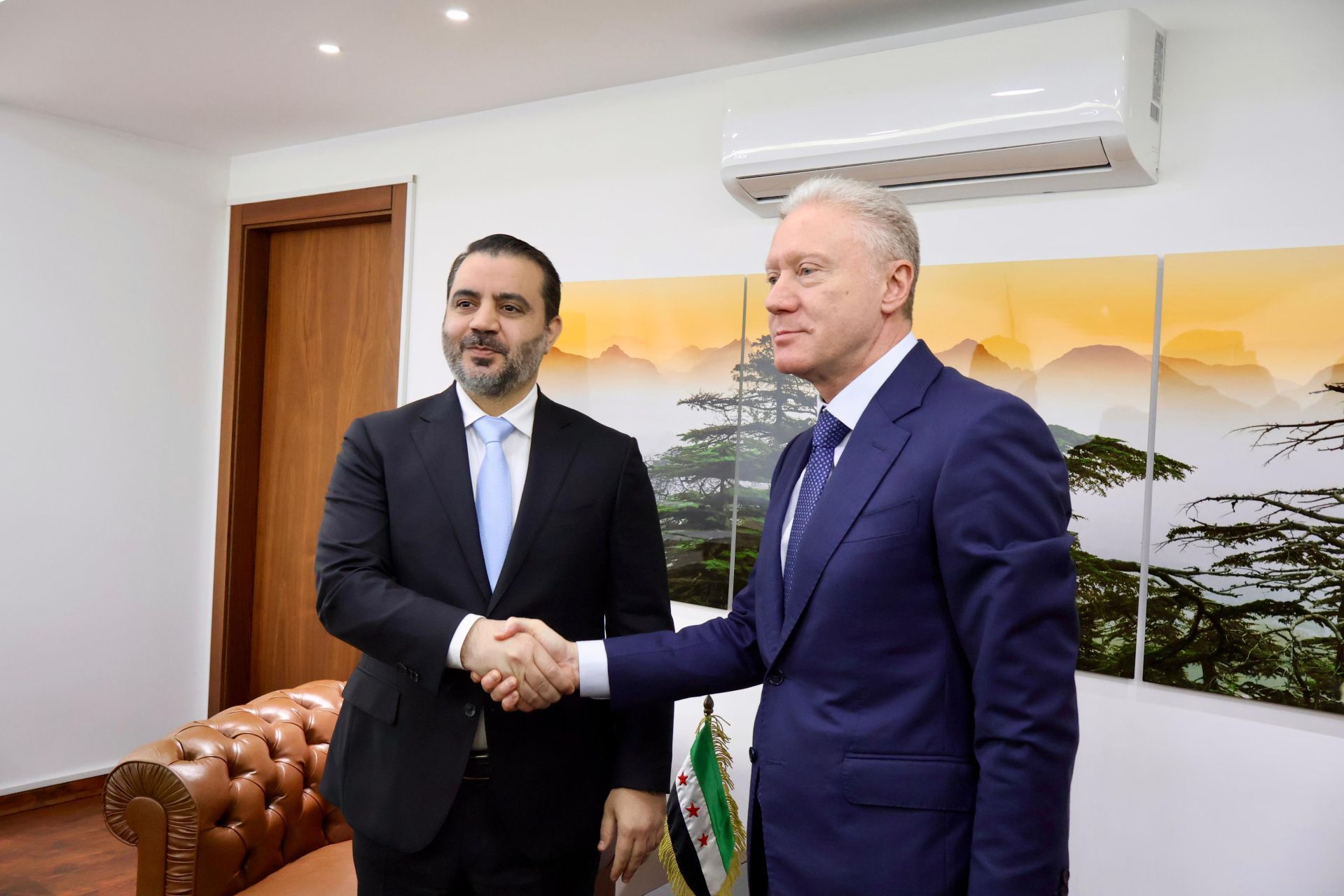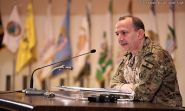
Minister of Foreign Affairs Youssef Raggi described the visit of his Syrian counterpart, Assaad al-Shaibani, to Beirut as the beginning of “a new chapter” in relations between Lebanon and Syria.
Al-Shaibani arrived in the Lebanese capital on Friday morning at the head of a high-level delegation for a one-day official visit, signaling Damascus’ intent to “overcome the obstacles of the past” and move beyond years of tension and “political mismanagement” between the two countries.
The visit marks the first by a Syrian foreign minister since the fall of the Assad regime on December 8, 2024, and represents a clear effort to reestablish diplomatic engagement after more than a decade of political freeze.
Raggi said the visit, which had been postponed several times for “technical and logistical reasons,” now reflects “a shared determination to build relations based on mutual respect and non-interference,” opening what he called “a new era of constructive cooperation between the two states.”
During their talks, the two ministers agreed to form bilateral committees to address all outstanding issues, including the fate of detainees, border demarcation and control, and the status of displaced Syrians in Lebanon. “Relations between Lebanon and Syria must move from a tense security approach to political and economic cooperation,” al-Shaibani said, stressing that Damascus “fully respects Lebanon’s sovereignty and does not interfere in its internal affairs.”
For his part, Raggi welcomed the renewed dialogue, describing it as “a positive step toward the gradual normalization of relations.”
Al-Shaibani also expressed gratitude to Lebanon for hosting Syrians during the crisis, praising the “deep historical and human ties” between the two nations. Lebanon hosts nearly two million Syrians, the highest number of displaced people in the world per capita. “We hope this matter will be resolved, and discussions are underway regarding plans for a dignified and sustainable return that take into account Syria’s post-war situation,” he added.
Later on Friday, the Syrian foreign minister met with President Joseph Aoun at Baabda Palace, where discussions covered key issues of mutual concern. Al-Shaibani conveyed an official invitation for President Aoun to visit Damascus and highlighted that Syria is entering “a phase of recovery and reconstruction,” which he hopes will “positively reflect on Lebanon and on the historic ties between the two countries.” He expressed optimism that “all matters hindering the normalization of relations will be resolved in a way that benefits both peoples.”
President Aoun emphasized that “strengthening and developing bilateral relations requires the establishment of mixed commissions to review all pending issues.” He stressed the need to revisit, examine, and update existing agreements to reflect current realities.
Following these meetings, al-Shaibani, accompanied by a delegation including the Syrian Justice Minister Mazhar al-Wais, Intelligence Chief Hassan Salameh, and Deputy Interior Minister Abdel Qader Tahan, proceeded to the Grand Serail to meet Prime Minister Nawaf Salam. A meeting also took place between the General Director of Lebanese General Security, General Hassan Choucair, and Deputy Syrian Interior Minister Abdel Qader Tahan.
Following the discussions, Al-Shaibani said that both sides had agreed on the need to expedite the issue of Syrian detainees in Roumieh Prison, noting that “significant progress” had been made and that “tangible results” are expected soon.
He added that the talks also focused on tightening border control to enhance security and stability, as well as addressing the situation of Syrian refugees in Lebanon.
Al-Shaibani reiterated that relations between Beirut and Damascus are entering “a new phase, far from previous tensions,” highlighting a joint commitment to strengthen security and intelligence cooperation and to convene technical and economic committees aimed at stimulating bilateral investment and economic growth.
End of an Era: Suspension of the Lebanon-Syria Higher Council
In a symbolic move, Syria informed Lebanese authorities, through its embassy in Beirut, that the Lebanon-Syria Higher Council has been suspended and that all correspondence between the two states will be limited to official diplomatic channels. Established in 1991 under the cooperation agreement between former Lebanese President Elias Hrawi and then-Syrian President Hafez al-Assad, the council had long symbolized Syrian political tutelage over Lebanon.
President Aoun said the suspension makes it essential to reactivate formal diplomatic relations and expressed Lebanon’s expectation that a new Syrian ambassador will be appointed in Beirut to handle all bilateral matters through the embassies. “The road is long,” he said, “but when intentions are clear, the interests of our two fraternal countries must take precedence over all other considerations. We have no choice but to reach an understanding that guarantees these common interests.”



Comments